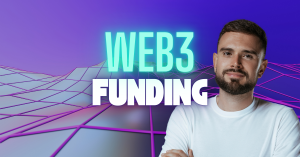While much has been discussed about blockchain technology and its role in the finance sector, its value expands much more beyond the financial market and industry. Blockchain use cases are expanding every day. Nowadays, even industries such as music are reaping the benefits of blockchain to improve their existing establishments.
For example, a few years back Spotify acquired the blockchain startup Mediachain to develop a blockchain-based decentralized solution by providing artists with licensing agreements, making the entire process more streamlined, faster, and cheaper.
The web3 technology also has the potential to solve many problems in industries such as healthcare, supply chains, logistics, and data security. But there are still some challenges that need to be solved before blockchain can grow further, and people still need to grasp the potential of this technology, regional experts argue.
“Blockchain technology is effectively utilized in two ways: to protect people against the dangers of newer technologies and to make operating processes more efficient and enable new monetization models,” Bosnian entrepreneur and blockchain expert Vedad Mesanovic explains.
So what is an example of the dangers of newer technologies? The development or implementation of new AI-powered editing tools will be used in the future to spread misinformation and inspire misunderstanding and fear, he says.
Can blockchain stop the disinformation plague?
“For example, a deepfake is a video, image, or audio file of a specific person whose face or body is digitally modified to make them sound or look like someone else. This modern age alternation technique can be used to manipulate the general public effectively, influence political campaigns, incentivize marketing fraud, etc. In this case, blockchain-based verification solutions can be utilized to prevent such threats, benefiting different industries such as media, law enforcement, and security. In particular, video evidence can be time-stamped and signed, protecting it from being altered or faked and proving its authenticity,” Mesanovic tells The Recursive.
Buy and sell properties with tokens
Then, blockchain use cases extend to the real estate industry, which is an example when it comes to making operating processes more efficient and enabling new monetization models.
In addition to increasing operating transparency and accountability, blockchain technology will enable real estate companies to start selling properties to more customers through tokenization and other forms of digital trading, Mesanovic adds.
“Considering all the values of blockchain technology, other industries that can significantly benefit from blockchain technology are supply chains, identity management, security, banking and finance, mobility, etc. All these industries need better solutions to collect, store, track and manage their data,” he tells The Recursive.
Cutting down costs for healthcare
There is also a big potential for blockchain use cases for industries such as healthcare, North Macedonia-native expert Eva Jovanova points out.
“Healthcare is the industry for which governments around the world spend some of the highest shares of GDP. If used wisely, blockchain can cut down costs by cutting several actors in the whole process. For starters, keeping healthcare records on blockchain makes it easier for different healthcare providers to obtain the data faster and more efficiently. In more complex cases, faster diagnostics could be life saving. Secondly, storing healthcare data, such as prescriptions, on the blockchain, makes filing and managing prescriptions efficient and less prone to abuse – something that has been the case over the past decades especially in the US with the opioid crisis,” Accointing’s Jovanova tells The Recursive.
Mesanovic seconds that, pointing out that blockchain-based management of data will be a game-changer for the healthcare industry.
“The improvement of healthcare standards in many countries depends on effective collaboration and sharing of accurate data. All the segments of blockchain technology – from cryptographic keys and smart contracts to distributed data and transparency – will create an effective solution for the integrity, safety, and sharing of healthcare information,” he emphasizes.
For Edi Sinovcic, CEO of Shard Labs and Near BALKANS Strategic Advisor, while there is the potential in many industries, including health care, one also needs to have in mind the restrictive regulations in these so-called “old industries”.
“Old industries like healthcare will take much more time as regulation there is quite strict and hard to tackle. Insurance has a great potential as blockchains can bring a level of transparency to it while improving efficiency (which results in fewer operational costs). Overall we are truly entering the era of blockchain technology as world computers on the scale which has never been seen before,” Sinovcic tells The Recursive.
Dangerous tool in the hands of autocrats?
According to Croatia-based Sinovcic, the use of blockchain will also improve globalization efforts that have unfortunately hit a roadblock with events like COVID or the war in Ukraine.
“In 5 years time blockchain will be all around us and we won’t even think about it as something major, same as we use the internet every day but don’t think where it is or how it works,” he tells The Recursive.
Then, there is also the potential of “zero knowledge”.
“There is another huge breakthrough on so-called “zero knowledge” technology. This tech changes the whole paradigm as it brings privacy features to public blockchains! Currently everything we do on blockchains can be tracked by anyone who owns a browser and this tech will remove that issue as it will enable us true privacy,” Sinovcic explains.
For Jovanova though, while there are the obvious benefits, there are also the dangers that might come with those that are using the technology.
“If blockchain technology is used in an ethical way, then all industries could reap the benefits of it. If used by an authoritarian government, however, it can be a dangerous tool,” she stresses, adding that for example this can be felt in industries such as insurance.
“The situation is more tricky when it comes to insurance. Depending on who has access to the healthcare data, insurance premiums might increase in cases where insurance companies have real-time access to more healthcare data, making healthcare more expensive for patients. This is where the role of governments and regulators should come into play and safeguard a fairer, less exploitative usage of blockchain technology to the benefit of the patients,” Jovanova tells The Recursive.
According to Mesanovic, with all of these examples, when it comes to blockchain technology and its mainstream adoption, people should not talk just about Bitcoin, Ethereum, bear and bull markets, for instance. They need to brainstorm and discuss improved blockchain use cases that contribute to security, transparency, auditability, traceability, cost reduction, and efficiency.
“Blockchain technology has the potential to change how we do business fundamentally, run organizations, and manage our lives. But what are the steps to making mainstream adoption happen and dealing with specific issues related to blockchain technology and digital assets in general? Education, education, education, and then everything else,” Mesanovic concludes.








